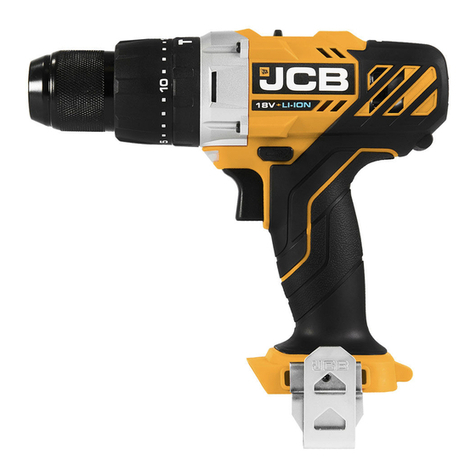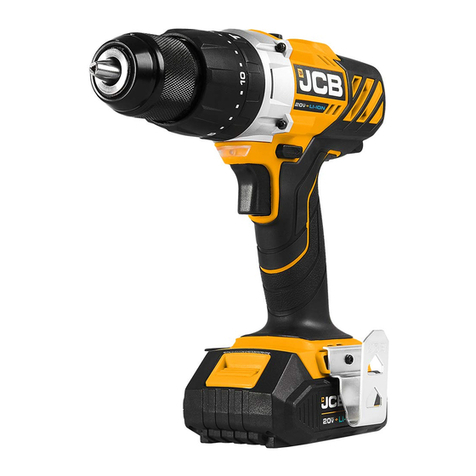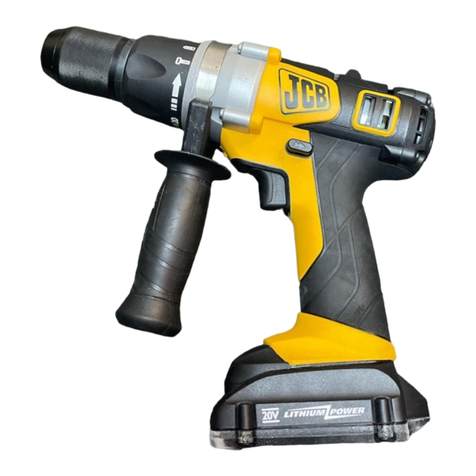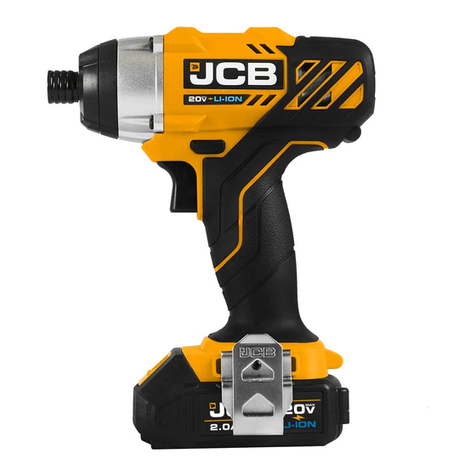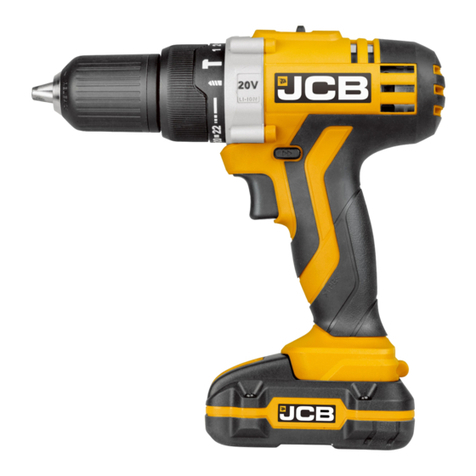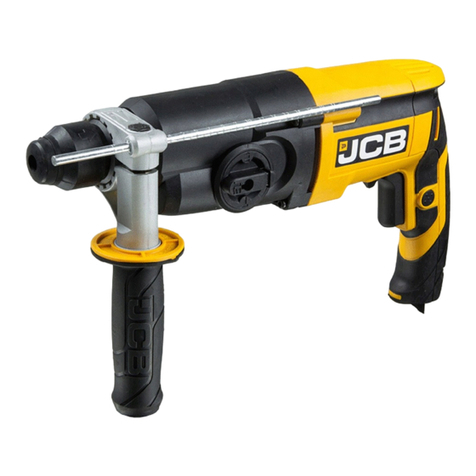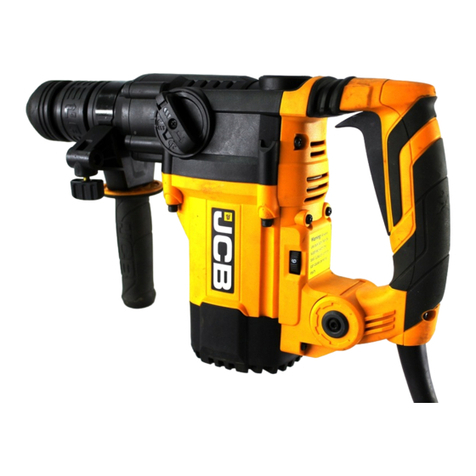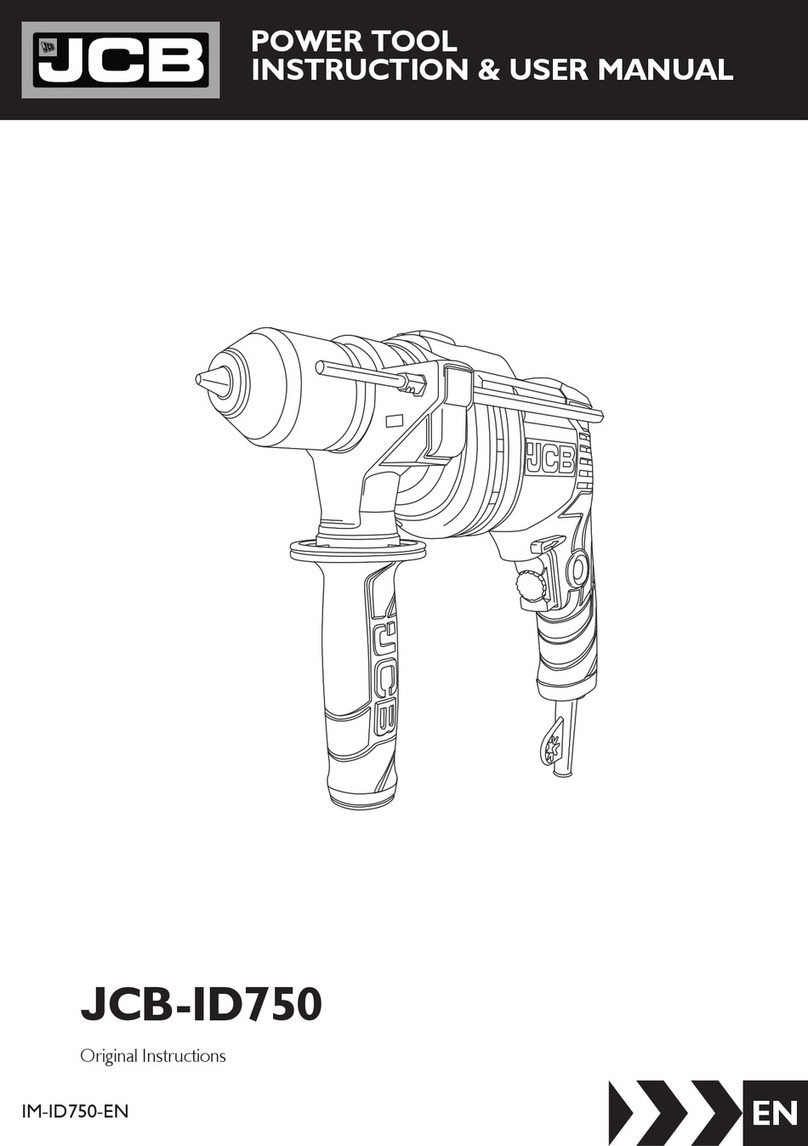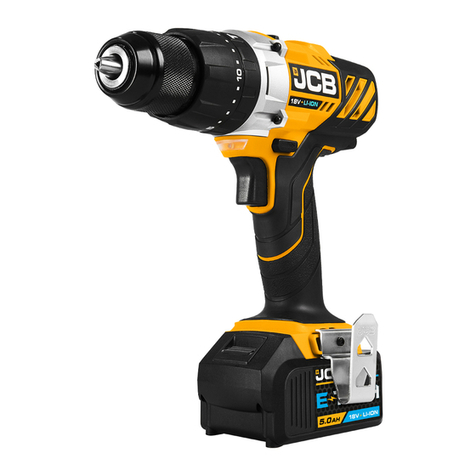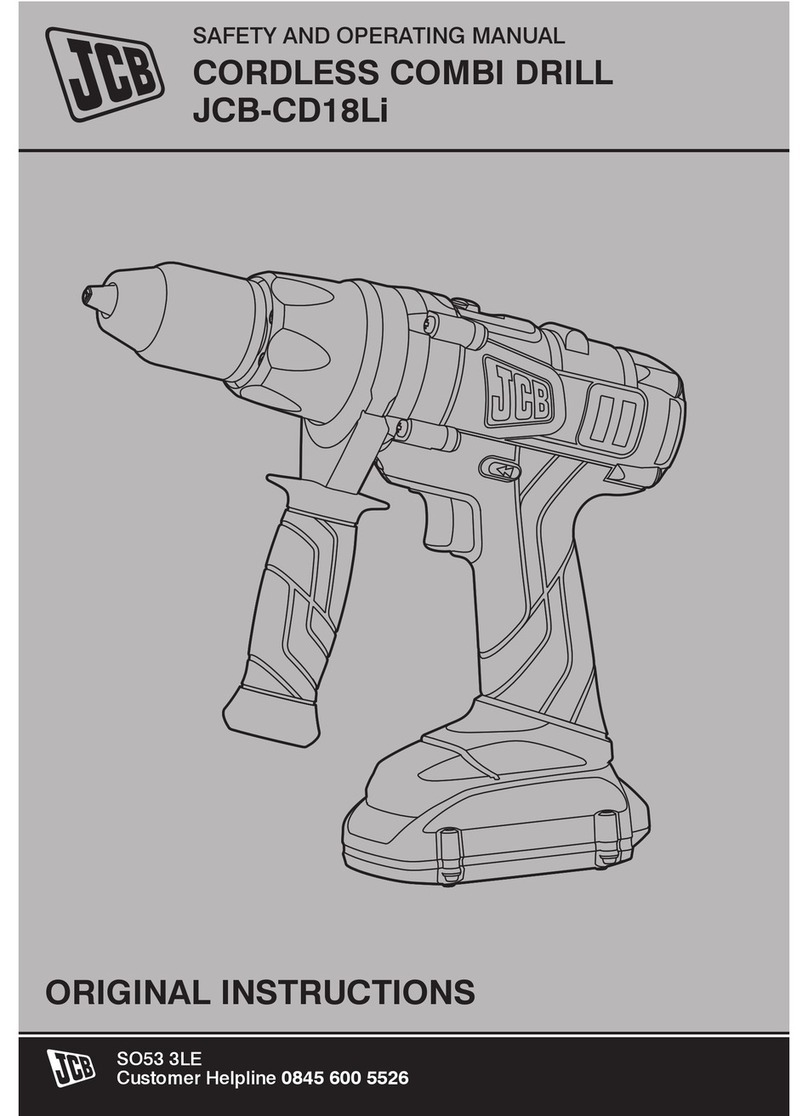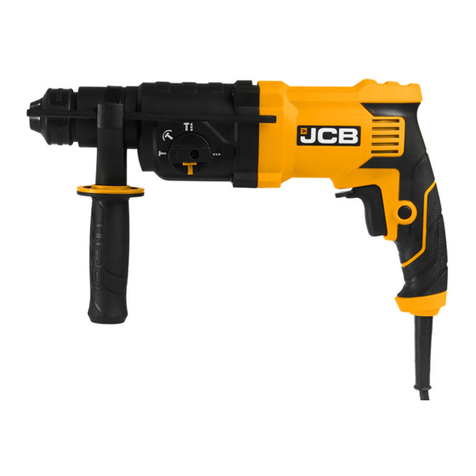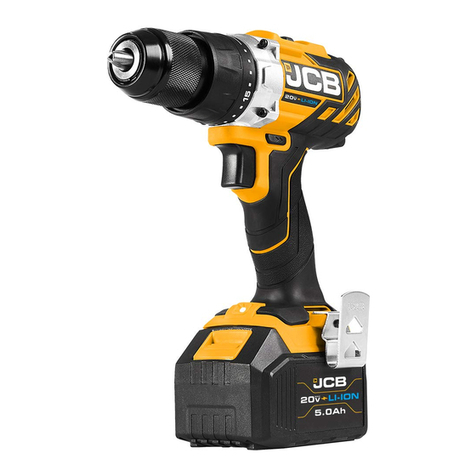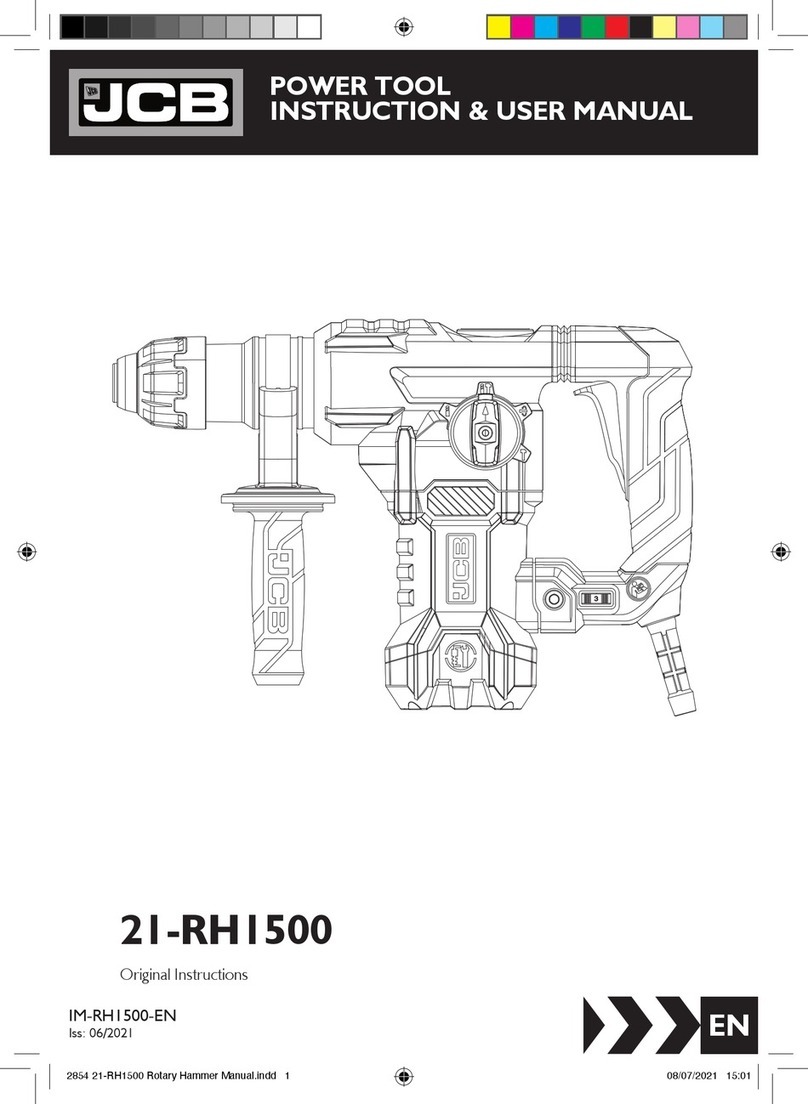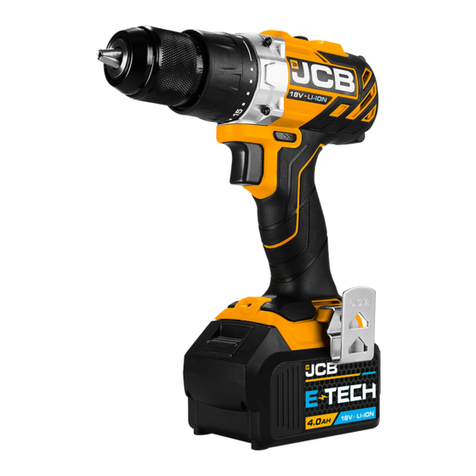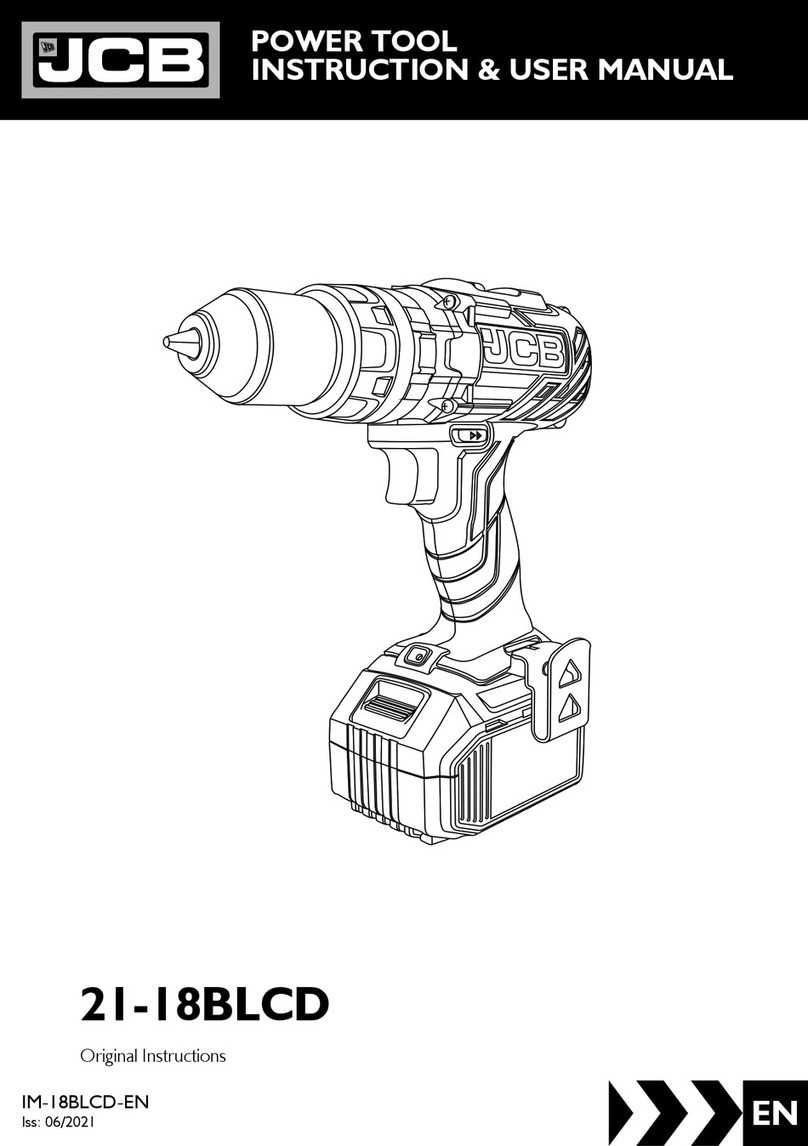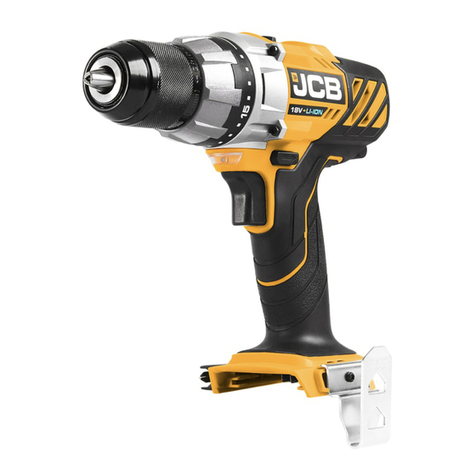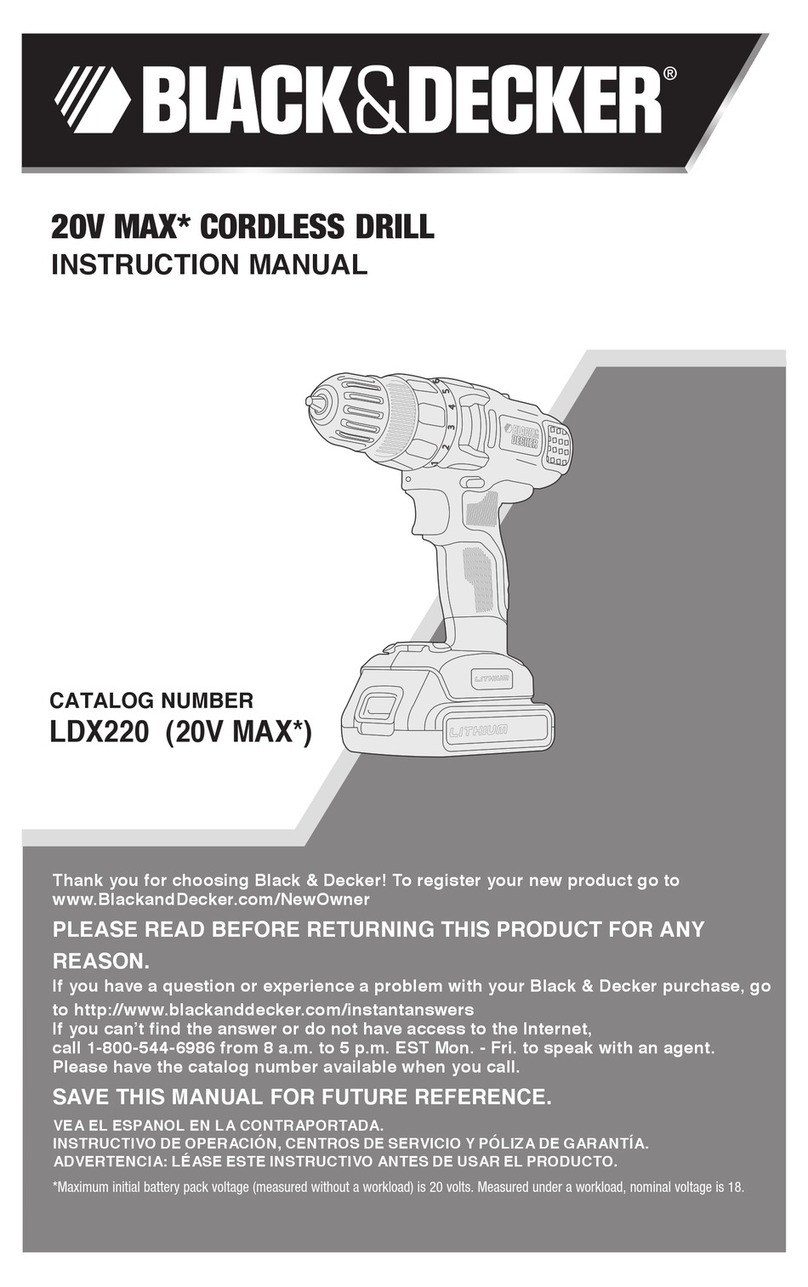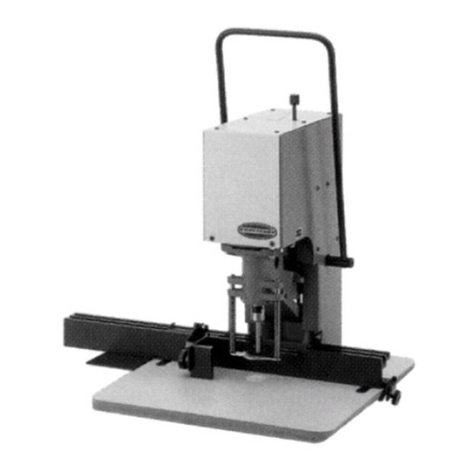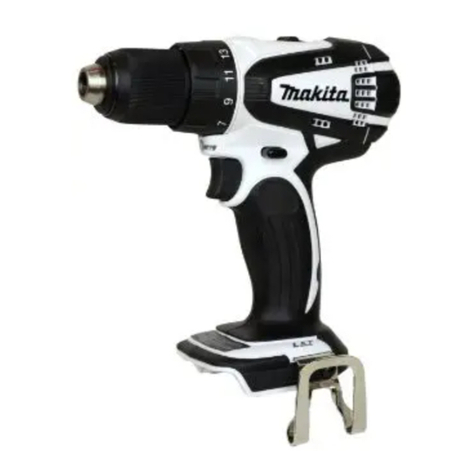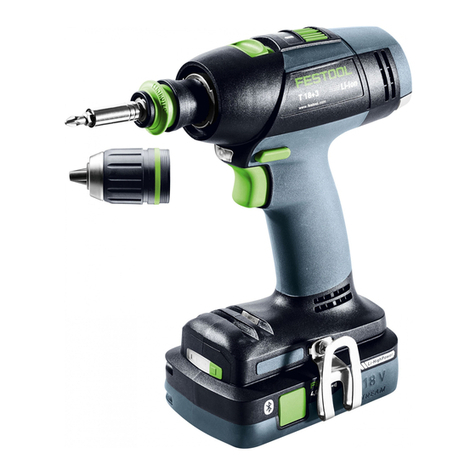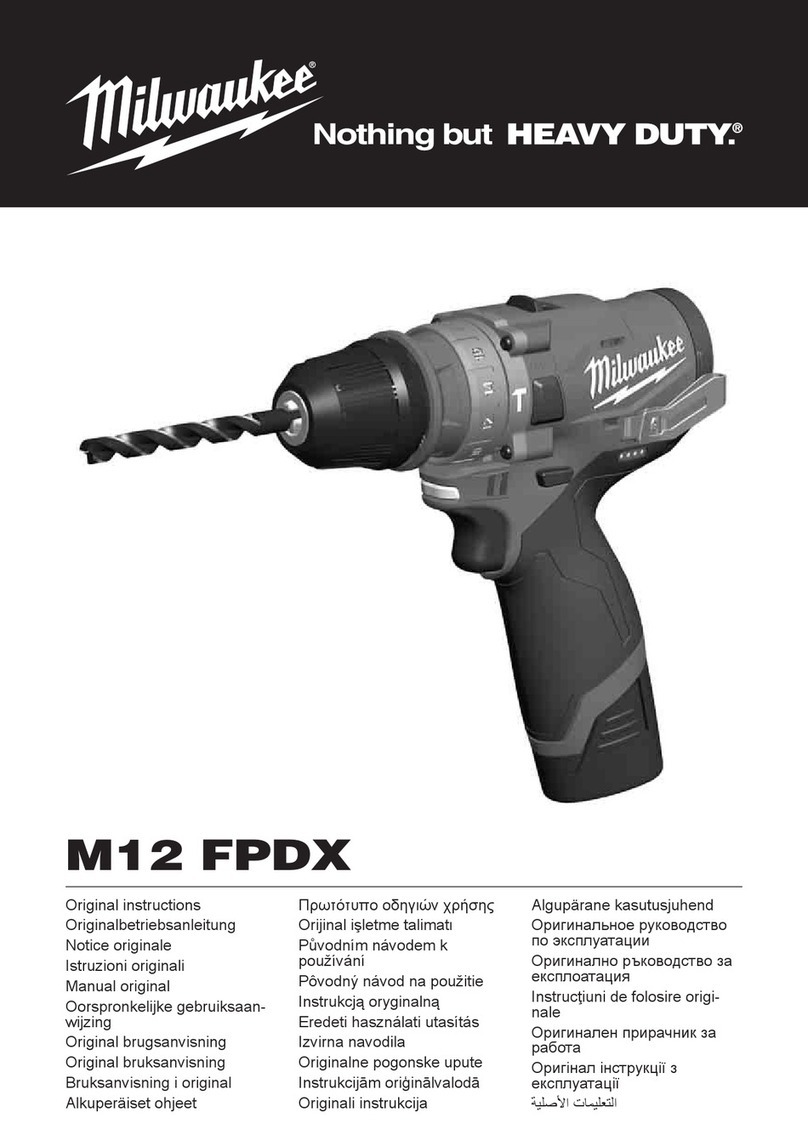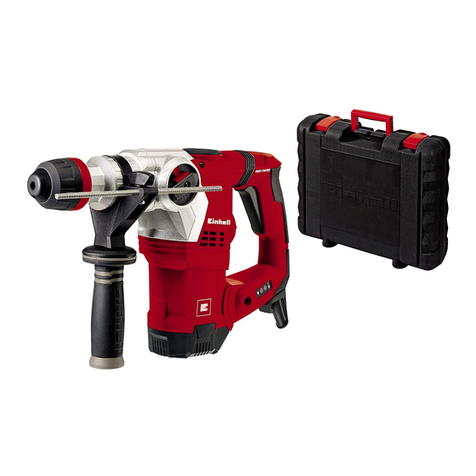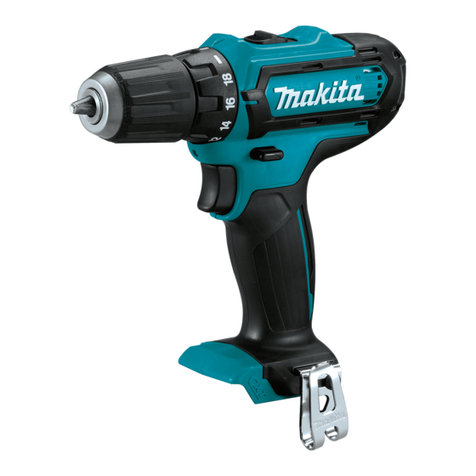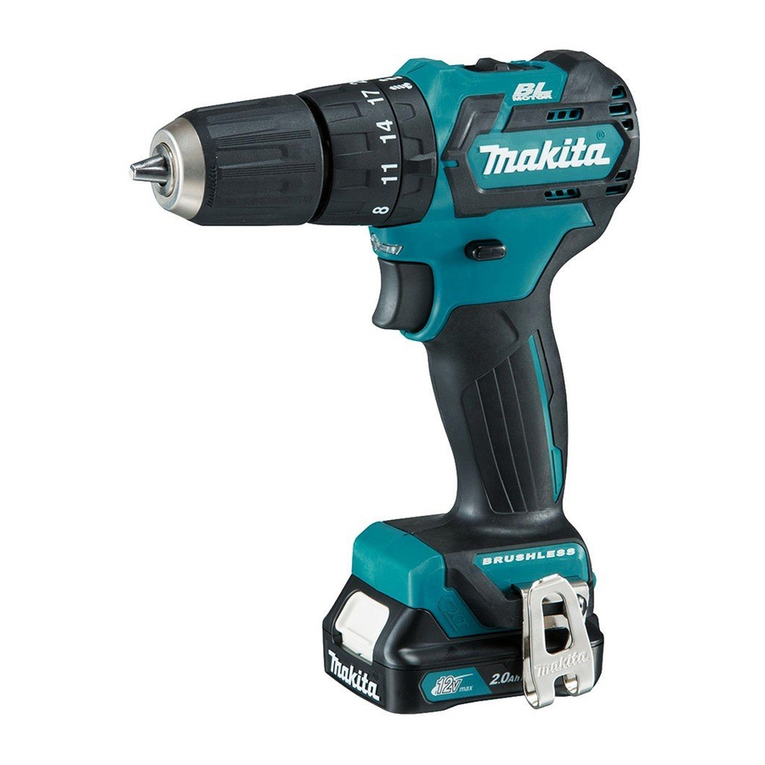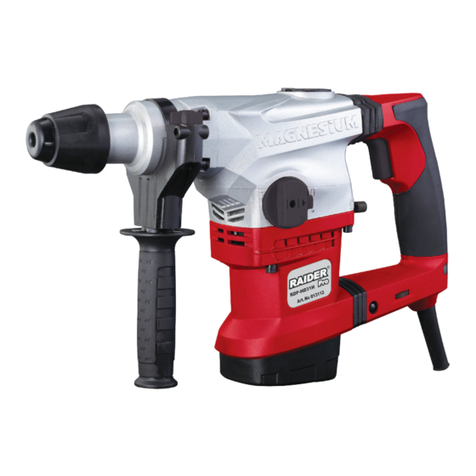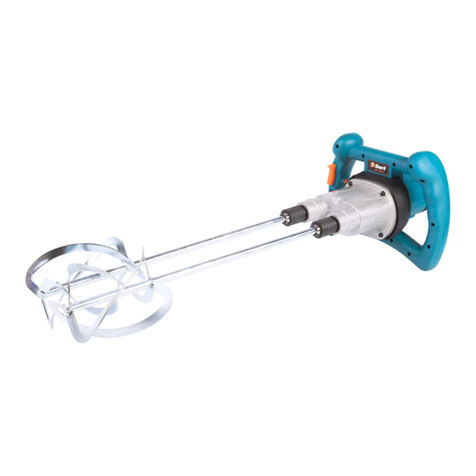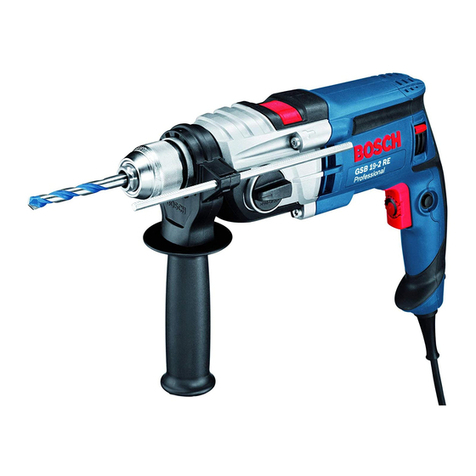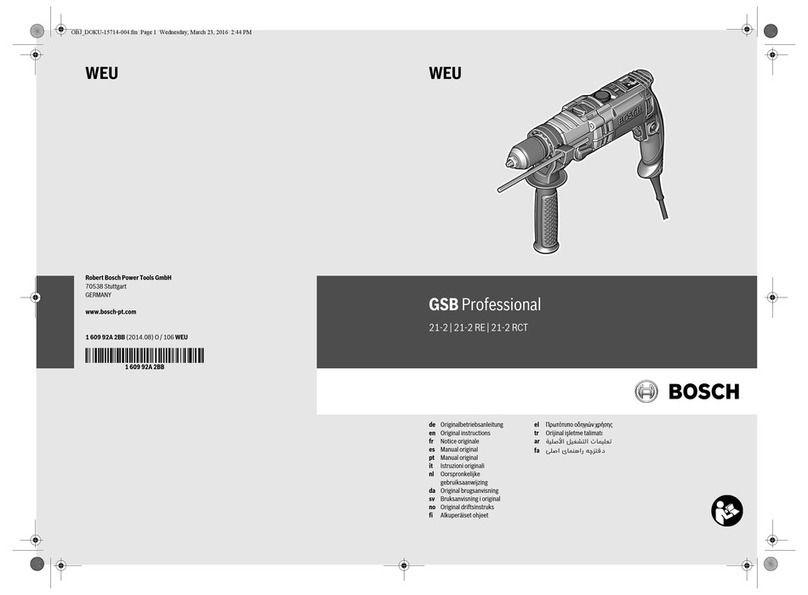
6JCB-20DD
Instruction & User Manual
m Remove any adjusting key or wrench
before turning the power tool on. A
wrench or a key left attached to a rotating part of
the power tool may result in personal injury.
m Do not overreach. Keep proper footing
and balance at all times. This enables
better control of the power tool in unexpected
situations.
m Dress properly. Do not wear loose
clothing or jewellery. Keep your hair and
clothing away from moving parts. Loose
clothes, jewellery or long hair can be caught in
moving parts.
m If devices are provided for the connection
of dust extraction and collection facilities,
ensure these are connected and properly
used. Use of dust collection can reduce dust-
related hazards.
m Do not let familiarity gained from
frequent use of tools allow you to become
complacent and ignore tool safety
principles. A careless action can cause severe
injury within a fraction of a second.
4. Power tool use and care
m Do not force the power tool. Use the
correct power tool for your application.
The correct power tool will do the job better
and safer at the rate for which it was designed.
m Do not use the power tool if the switch
does not turn it on and off. Any power
tool that cannot be controlled with the switch is
dangerous and must be repaired.
m Disconnect the plug from the power
source and/or remove the battery pack,
if detachable, from the power tool before
making any adjustments, changing
accessories, or storing power tools. Such
preventive safety measures reduce the risk of
starting the power tool accidentally.
m Store idle power tools out of the reach
of children and do not allow persons
unfamiliar with the power tool or these
instructions to operate the power tool.
Power tools are dangerous in the hands of
untrained users.
m Maintain power tools and accessories.
Check for misalignment or binding of
moving parts, breakage of parts and any
other condition that may affect the power
tool’s operation. If damaged, have the
power tool repaired before use. Many
accidents are caused by poorly maintained power
tools.
m Keep cutting tools sharp and clean.
Properly maintained cutting tools with sharp
cutting edges are less likely to bind and are easier
to control.
m Use the power tool, accessories and
tool bits etc. in accordance with these
instructions, taking into account the
working conditions and the work to
be performed. Use of the power tool for
operations different from those intended could
result in a hazardous situation.
m Keep handles and grasping surfaces
dry, clean and free from oil and grease.
Slippery handles and grasping surfaces do not
allow for safe handling and control of the tool in
unexpected situations.
5. Battery tool use and care
m Recharge only with the charger specified
by the manufacturer. A charger that is suitable
for one type of battery pack may create a risk of
fire when used with another battery pack.
m Use power tools only with specifically
designated battery packs. Use of any other
battery packs may create a risk of injury and fire.
